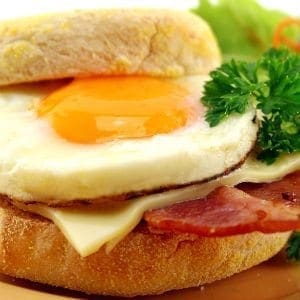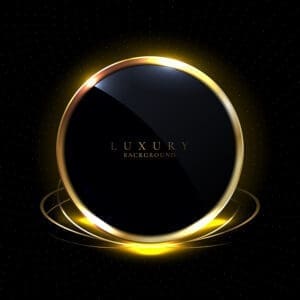 Eating out as a social activity continues to rise and appears to be almost recession proof. Over 68 percent of young Europeans report they eat out at least once a week, and in the UK in 2014/2015, there were 1300 new restaurant openings. This was a net figure taking into consideration openings and closures. What seems to be fuelling these developments are innovations from start-ups through entrepreneurs looking to establish young brands in the marketplace supported by venture capital. This trend is equally apparent from Berlin to Brussels to New York to Sydney.
Eating out as a social activity continues to rise and appears to be almost recession proof. Over 68 percent of young Europeans report they eat out at least once a week, and in the UK in 2014/2015, there were 1300 new restaurant openings. This was a net figure taking into consideration openings and closures. What seems to be fuelling these developments are innovations from start-ups through entrepreneurs looking to establish young brands in the marketplace supported by venture capital. This trend is equally apparent from Berlin to Brussels to New York to Sydney.
Key drivers and trends
Christophe Jouan, the chief executive of the Future Foundation gave the 2016 City Food Lecture at the Guildhall, in the City of London on 16 February entitled “What, When and How will we be eating in 2025”. In the lecture, Christophe suggested that there are a number of international trends that apply to a range of consumer activities in food retailing. Let’s take this article further by suggesting that the consumer trends that are impacting food retailing can equally apply to the eating out market.
The basis of eating out is for the experiences that you cannot get at home. That experience is more than the fuel the food provides, but is part of the theatre of food, the social experience, the entertainment – it is how that experience enhances our lives. But consumers and especially the younger consumers are looking for a number of underlying “values” in that experience and will make judgement and choice based on the perception of the values as much as the food experience.
What is driving these values?
One interpretation is the view that consumers need to be in control. They want to know that what they’re eating is safe, authentic, has been produced with high standards, and the provenance gives them some comfort that the food has been produced in a sustainable way. They’re seeking transparency and trust. Yet at the same time, they’re happy to make the conscious decision to indulge in eating out whilst then moderating that indulgence through “offsetting”. Indulgence creates feelings of guilt that need to be consciously rebalanced through this notion of offsetting. One manifestation of this could be the 5:2 fasting diet, whilst others would be the often heard phrases such as “that’s all right, I’ll just eat salad tomorrow”.
Technology also has a major role to play in consumers expectations on the benefits of food. It is estimated that health tracking apps either through fit-bits, smartwatches or smartphone apps will be standard wear for over 32 percent of the population by 2025. This will be linked with food tracking apps that provide information for the consumer to measure their “indulgences” and then “offset” them following the recommendation on their smartphones. Food tracking apps will, in theory, also be developed to track the provenance of food products from gate to plate. This is likely to be much more complex than tracking car parts through the supply chain given the number of intermediate processes food is often subjected to prior to ending up on the plate.
This demonstrates how consumers want to be in control and will increasingly use technology that will allow them to at least think they are more in control.
These underlying values are increasingly part of the DNA of the eating out experience. The innovative new start-ups, the entrepreneurs, the rise of new brands and the focus on provenance trust and transparency suggest we are looking to widen our experiences, but only within the values we have established that the eating out experience should exhibit.
Hotel restaurants
How does this leave the hotel restaurant? Do hotel restaurants demonstrate those values? Are they entertaining, fun, theatrical experiences that consumers would be seeking in modern innovative restaurants, or are they merely providers of food as fuel? Would you choose a hotel restaurant as a dining experience destination?
There is no one answer to these questions, other than “it depends!”. Hotel restaurants are competing with branded eating out chains, specialist and ethnic restaurants and the whole spectrum of different eating out experiences. Clearly they cannot be all things to all people, but they do have to have a well-defined focus and understand the nature of the market that they’re trying to attract. It may be that market is to improve the sleeper diner ratio by targeting in-house guests or it may be in broadening the restaurant experience appeal to make it a food driven destination. The larger international brands by the very nature of the brand offer could struggle to provide that differentiation in their food and beverage experience, whereas independent hotels have more flexibility and greater opportunity to develop a more unique experience.
If food and beverage is to be as it has been called, “the beating heart of the hotel”, it needs to reinvent itself into a more attractive experience that will meet the changing needs and expectations of today’s consumers. It is only by thinking radically and reinventing the hotel restaurant as a destination that they will survive.
About the author
 Professor Peter A. Jones, MBE, is the Dean of the eHotelier Academy. With a distinguished career in hospitality, education and training, Peter has been involved with national and international projects with clients involved in hospitality education. Peter is a Director the Edge Hotel School and of Hotel Future, a new education and training initiative in Greater Manchester and is a Visiting Professor at the University of Derby. He was also awarded a Member of the Order of the British Empire for services to the hospitality industry.
Professor Peter A. Jones, MBE, is the Dean of the eHotelier Academy. With a distinguished career in hospitality, education and training, Peter has been involved with national and international projects with clients involved in hospitality education. Peter is a Director the Edge Hotel School and of Hotel Future, a new education and training initiative in Greater Manchester and is a Visiting Professor at the University of Derby. He was also awarded a Member of the Order of the British Empire for services to the hospitality industry.



















